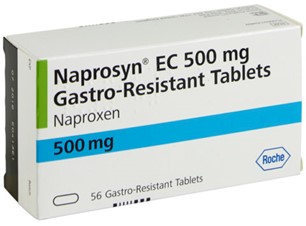Adverse effects of NSAIDs
Adverse effects of NSAIDs ( 3 Questions)
A nurse is administering naproxen (Naprosyn), a nonselective COX inhibitor, to a client who has bursitis. What are some of the contraindications for this drug?
Naproxen is a nonselective COX inhibitor, which means it blocks the production of prostaglandins, which are involved in inflammation, pain, fever, and blood clotting. Naproxen can cause serious side effects such as cardiovascular thrombotic events, gastrointestinal bleeding and ulceration, renal toxicity, and hypersensitivity reactions¹²³.
Asthma, hypertension, heart failure, diabetes, dehydration, alcoholism, smoking, advanced age, and concurrent use of anticoagulants, glucocorticoids, or other NSAIDs are not contraindications for naproxen, but they are cautions or risk factors that may increase the likelihood of adverse effects or require dose adjustment or monitoring¹²³.
History of cardiovascular thrombotic events, such as myocardial infarction or stroke, severe allergic reactions to NSAIDs or aspirin, such as anaphylaxis or angioedema, and coronary artery bypass graft surgery are not specific contraindications for naproxen, but they are warnings that apply to all NSAIDs due to their potential to increase the risk of these serious events¹²³.
None of the above is incorrect because option A contains some valid contraindications for naproxen.
Naproxen is a nonselective COX inhibitor, which means it blocks the production of prostaglandins, which are involved in inflammation, pain, fever, and blood clotting. Naproxen can cause serious side effects such as cardiovascular thrombotic events, gastrointestinal bleeding and ulceration, renal toxicity, and hypersensitivity reactions¹²³.
The other options are incorrect because:
- B. Asthma, hypertension, heart failure, diabetes, dehydration, alcoholism, smoking, advanced age, and concurrent use of anticoagulants, glucocorticoids, or other NSAIDs are not contraindications for naproxen, but they are cautions or risk factors that may increase the likelihood of adverse effects or require dose adjustment or monitoring¹²³.
- C. History of cardiovascular thrombotic events, such as myocardial infarction or stroke, severe allergic reactions to NSAIDs or aspirin, such as anaphylaxis or angioedema, and coronary artery bypass graft surgery are not specific contraindications for naproxen, but they are warnings that apply to all NSAIDs due to their potential to increase the risk of these serious events¹²³.
- D. None of the above is incorrect because option A contains some valid contraindications for naproxen.

